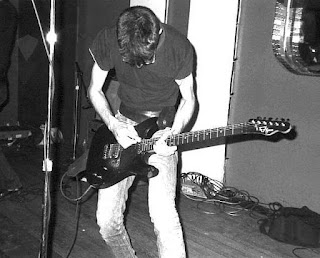To use a literary example, Vladimir Nabokov's Lolita (one of my favorite novels) is notoriously controversial for just this reason. Its in-depth descriptions of pedophilia, murder, and sexual perversion are so visceral that it was banned in multiple countries. Is Vladimir Nabokov a pedophile? No. Does he illustrate the opinions and sensual desires of a pedophile? Yes. In reading Lolita, we are forced to design a personal paradigm with which to read the book. The protagonist (and pedophile), Humbert Humbert, coins the term "solipsization," or "to solipsize." The original meaning of solipsism is fashioned into something new. Humbert creates a separate universe in which he can sexualize Lolita and fantasize about her without encroaching on reality. The problem however, is those lines blur very quickly, as Humbert does in fact violate Lolita many, many times throughout the novel.
However, the concept of solipsism is quite interesting. The safety of solipsism is the opportunity it gives us to experience art in the most visceral sense, the most potent form of imaginative engagement and suspension of disbelief. We can place ourselves in a separate reality when we listen to music and experience it without repulsion from the aspects of it that we consider morally unacceptable. However, the peril of solipsism is the ability it has to dehumanize and obscure reality. I am able to take my own beliefs about feminism, equality, and misogyny, and put those to the side while listening to "Anne Frank." To be clear, I don't like hearing about anti-Semitism or rape, and I am certainly not defending Brainbombs, but I am curious about the lyrics. I wonder what it would be like to be misogynistic, or racist, or abusive--it is a type of imaginative engagement for me, rather like watching a movie or a play. When we watch a Quentin Tarantino movie, or read Lolita, we're not relishing the gory, disgusting elements--we are simply imagining what that would be like. A reader can only fully enjoy Lolita when they set their moral judgments aside, and let themselves fall under Humbert's spell, even agree with him at times. That's the fun in art--it allows us to try on different opinions and desires, to experience something other than ourselves.
That said, are musicians actors and authors? I am inclined to say that yes, idealistically, that is their role. However, these lines are easily blurred. Some artists are simple to analyze. Steve Albini has written some extremely offensive songs in his long and varied career. However, offstage, Albini is a completely different character. It's actually comical to think about him onstage versus the sort of person he appears to be on his food blog (it's totally awesome, check it out), where he gushes about cooking meals for his wife and serving her breakfast in bed. It's clear that Albini is playing a character in his music. He embodies a raging, perverted, graphic human onstage, but goes home to his wife when the show is over, same as a Shakespearean actor playing a villain like Macbeth or Iago. A musician can be an actor if the incidents and opinions he is describing are platonic scenarios used to challenge the audience and make them think.
However, this is not always the case. The ability "solipsization" has to blur lines is dangerous. There's a seedy underbelly to any countercultural movement, and none more so than punk, noise, and power electronics. Women have been harmed before, and hate crimes have been committed. The line between theatrics and reality has been crossed before, and it continues to happen. I don't think that's a reason to stop creating controversial art though. "Anne Frank" describes some of the most grisly aspects of human desire. It reminds us of our potential to commit horrendous sins and it fascinates us with its total lack of sensitivity towards subject matter that many consider taboo. In my personal opinion, I actually find punk and noise exciting because of this, there's a certain thrill in choosing to play a controversial song. Words are what you make of them. Actions are concrete, but words can be personalized, they can be "taken back" and "owned." I choose to expose these elements of music, the grisly, dark parts that people don't like to think about. I think admitting they exist and discussing them is actually a good way of leveling the playing field and making artists more accountable for what they do and say, forcing them to question the images they are using, and what meaning they are looking to convey in their music.



Brainbombs in interview said that that whatever member wrote the lyrics to Anne Frank was a "diehard antisemite" and that the lyrics were "from the heart". If someone agrees with it or not; I think everyone can admit that the fact that it's not some ironic shock humor is much more interesting than the other way around.
ReplyDeletei think the problem is that it's directed towards an individual person, especially when the person is just a teenage kid....if you know what i mean (english is not my native language)
ReplyDelete